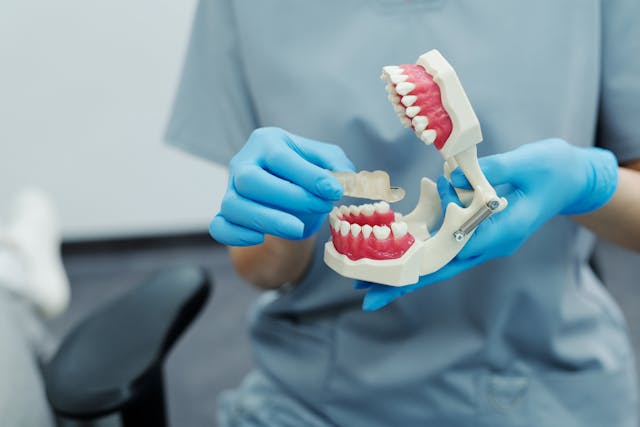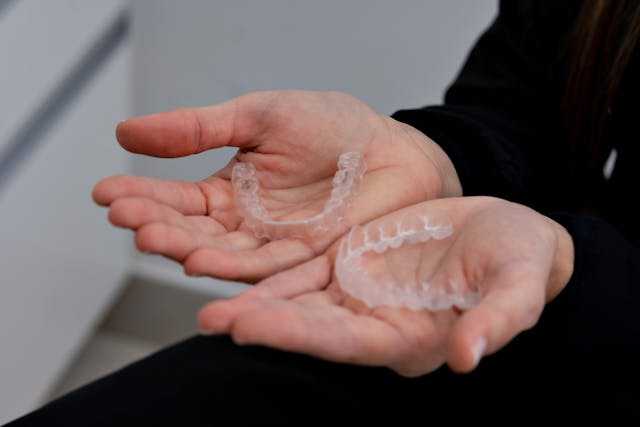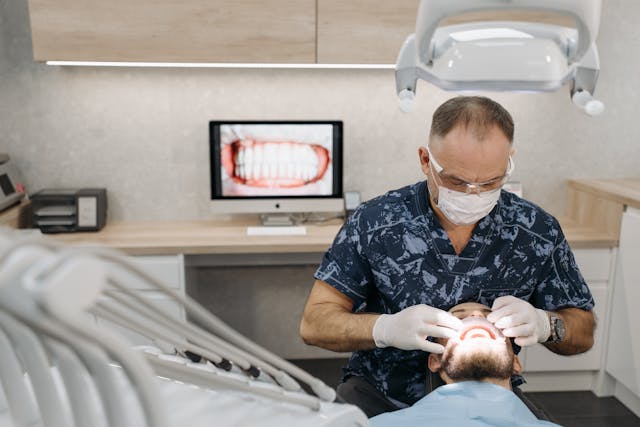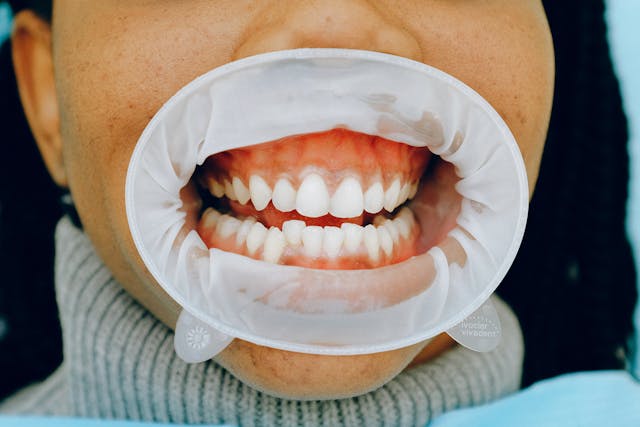Understanding Wisdom Teeth
What Are Wisdom Teeth?
Wisdom teeth are your third molars—the last set of teeth to emerge, usually in your late teens or early twenties. For some, they grow in just fine, but for many, they become a dental nightmare. These teeth often don’t have enough space to emerge properly, causing crowding, misalignment, or worse—painful impaction.
Call us at (909) 860-7579 to book your visit. You can also connect with us on Facebook or leave a review on Yelp. We look forward to seeing you!
Why Do We Have Wisdom Teeth?
They’re a leftover from our ancestors who needed them for chewing raw plants and tough meats. But today, thanks to modern diets and smaller jaws, they’re more of a hassle than a help.
When Do Wisdom Teeth Erupt?
Typically, wisdom teeth start to emerge between ages 17 and 25. Some people may never get them, while others might have one to four—or even extra (called supernumerary teeth).

Common Problems with Wisdom Teeth
Impaction and Pain
An impacted wisdom tooth is one that doesn’t fully emerge due to lack of space. It might be stuck under the gums or partially visible. This often leads to pain, infection, and even jaw stiffness.
Infections and Swelling
Partially erupted wisdom teeth can easily trap food and bacteria, leading to infections like pericoronitis. This causes inflammation, swelling, and an awful taste in your mouth.
Damage to Nearby Teeth
If left untreated, impacted wisdom teeth can push against your second molars, causing damage, decay, and alignment issues.
When Should You Consider Wisdom Teeth Removal?
Symptoms That Call for Extraction
If you’re experiencing swelling, jaw pain, gum tenderness, or difficulty opening your mouth, it might be time. X-rays can confirm whether your wisdom teeth are causing problems below the surface.
Preventive Removal—Is It Worth It?
Many dentists recommend removing wisdom teeth before they cause trouble, especially in teens or young adults. This prevents future complications and usually leads to faster recovery.
Preparing for Wisdom Teeth Surgery
Initial Dental Evaluation
A thorough dental check-up, including X-rays or panoramic scans, will help your dentist see how your wisdom teeth are developing and whether extraction is necessary.
What to Expect from the Consultation
Your dentist will explain the risks, benefits, and walk you through the surgical process. Don’t hesitate to ask questions!
Questions to Ask Your Dentist
- Will I need all my wisdom teeth removed?
- What kind of anesthesia will you use?
- How long will the recovery take?
The Wisdom Tooth Extraction Procedure
Local vs. General Anesthesia
Depending on the complexity of the case and your comfort level, your dentist may use local anesthesia, sedation, or general anesthesia.
Step-by-Step Process
- Numbing or sedating the area
- Making an incision in the gum (if impacted)
- Removing the tooth in one piece or in sections
- Stitches to aid healing (if needed)
How Long Does the Surgery Take?
Most extractions take 45 minutes or less, but impacted cases may take longer. You’ll usually be in and out on the same day.
Aftercare: What to Expect Post-Surgery
First 24 Hours After Surgery
Expect bleeding, swelling, and grogginess. Bite down gently on gauze and rest. Avoid talking, chewing, or using straws.
Managing Pain and Swelling
Over-the-counter pain meds or prescribed medications help. Use ice packs for 20-minute intervals to reduce swelling.
What to Eat and Avoid
Stick to soft foods like yogurt, mashed potatoes, smoothies, and soups. Avoid hot, crunchy, or spicy foods for at least a few days.
Recovery Timeline
Week-By-Week Healing
- Day 1-2: Swelling and discomfort peak
- Day 3-4: Pain starts subsiding
- Day 7: Stitches may be removed
- Week 2: Most feel back to normal
Signs of Infection or Complications
Call your dentist if you notice pus, persistent pain, fever, or bad breath. These can be signs of infection or dry socket.
Tips for a Speedy Recovery
Rest and Ice Packs
Sleep and limit activity the first 2-3 days. Ice helps control swelling and bruising.
Maintaining Oral Hygiene
Rinse gently with salt water after 24 hours. Avoid brushing the surgical site but keep the rest of your mouth clean.
Avoiding Dry Socket
Don’t smoke, spit, or use straws. These actions can dislodge the clot and lead to dry socket—a painful condition.
Costs and Insurance Coverage
What Affects the Cost?
Cost varies depending on the number of teeth, type of anesthesia, and complexity. Simple extractions are cheaper than surgical ones.
Insurance Tips and Financing
Many dental insurance plans cover wisdom teeth removal. Check with your provider. Clinics like Diamond Dental Care also offer financing options for uninsured patients.

Choosing the Right Dental Clinic
Why Experience Matters
A skilled and experienced dental team ensures a smooth procedure and minimizes complications. Reviews, referrals, and consultations can help you choose wisely.
Promoting Diamond Dental Care, Diamond Bar, CA
Looking for expert care in a comfortable setting? Diamond Dental Care at 303 South Diamond Bar Blvd, Ste 2C, Diamond Bar, CA 91765 is your trusted partner for safe and professional wisdom teeth removal. Their friendly team, advanced technology, and personalized care make all the difference. Call (909) 860-7579 to schedule your consultation!
Final Thoughts on Wisdom Teeth Removal
Wisdom teeth removal doesn’t have to be scary. With the right information, preparation, and a trustworthy dental team, you can breeze through it. Don’t wait for the pain to start—get evaluated early and avoid future complications. Whether you’re dealing with discomfort now or just planning ahead, you’re already one step closer to a healthier smile.
Call us at (909) 860-7579 to book your visit. You can also connect with us on Facebook or leave a review on Yelp. We look forward to seeing you!
Frequently Asked Questions (FAQs)
1. Do all wisdom teeth need to be removed?
Not always. If they’re healthy, fully erupted, and properly aligned, they can stay. But regular monitoring is key.
2. How long does wisdom teeth removal take?
Usually 30 to 60 minutes, depending on complexity and number of teeth being removed.
3. How painful is wisdom teeth surgery?
The procedure itself is painless due to anesthesia. Post-op discomfort is manageable with rest, medication, and proper care.
4. What can I eat after wisdom teeth removal?
Stick to soft, cold or lukewarm foods like smoothies, soups, applesauce, and mashed potatoes for the first few days.
5. When should I call my dentist after surgery?
If you experience excessive bleeding, severe pain, fever, or signs of infection, contact your dentist immediately.



